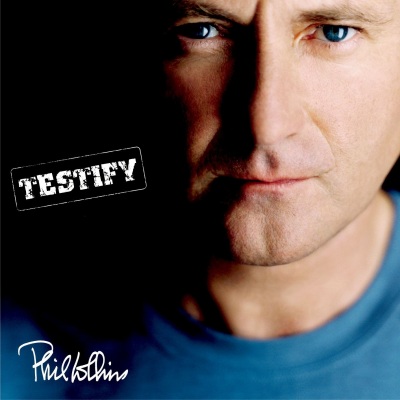
Testify
by William Ruhlmann On his first regular studio album in six years (fans having been tided over by a live album of swing standards and the soundtrack to Tarzan), Phil Collins turns in a song cycle with a story to tell. Without commenting on any autobiographical implications, it follows the life of a man who gets up in the morning ("Wake up Call"), expresses his love for his child ("Come With Me") and his companion ("Testify"), then pauses to condemn the drift of world affairs ("Don't Get Me Started"). He has another child ("Swing Low") and begins to realize that there's trouble in paradise ("It's Not Too Late"). Much as he loves his companion, a separation occurs ("This Love This Heart"), and despite his desperate efforts to keep things together ("Driving Me Crazy"), he finds that it will be permanent ("The Least You Can Do"), even though he still cares for her ("Can't Stop Loving You"). He takes comfort in his ability to offer parental advice to an older child ("Thru My Eyes") and in his love for the younger one ("You Touch My Heart"). Collins gives a consistency to the songs, with dense, rhythmic musical beds topped by his expressive, breathy tenor. His lyrics are full of clichés and a bit too involved, usually lacking strong hooks, which may explain why the album's hit single, "Can't Stop Loving You," which is practically all hooks, was written by someone else. Years after being a top album-seller, Collins has continued to score in the adult contemporary market; in fact, "You'll Be in My Heart" from Tarzan became the biggest adult contemporary hit in history. "Can't Stop Loving You" also became a big hit, but it's atypical of an album with mature themes expressed sincerely yet without much wit or insight over repetitious music.
